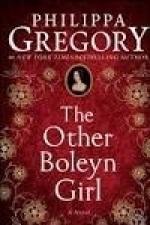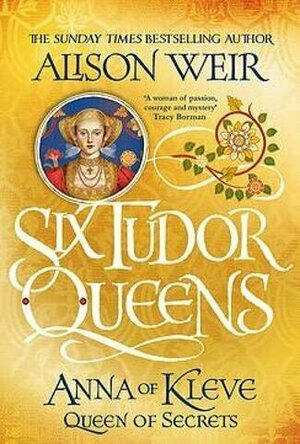graveyardgremlin (7194 KP) rated The Other Boleyn Girl in Books
Feb 15, 2019
Mary Boleyn, the narrator, is a strange character: sympathetic and of reasonable intelligence one minute, a moronic irritant the next. Personality-wise she went up and down and back and forth. First she was fine not being the King's favorite anymore and seeming to want to leave the court life for the country to be with her children, then she was jealous of a title Anne received, years after the affair between Mary and Henry was over. Possibly this was put in as part of the rivalry between the sisters, but it didn't contextually fit. Her development could have used more work and she didn't mature or change much throughout the whole book, especially between the years 1522 to 1533. I seriously got tired of everybody's patronizing and calling her a fool all the time. They should have just named the book, <b>The Foolish Boleyn Girl</b>. I find it hard to believe Mary was so ignorant the king would have continued to have her as mistress for four years, give or take. She had to offer something other than good looks and being great in the bedroom. Anne herself sure was a piece of work, and even though she was pretty much evil throughout the book, I did still feel sorry for her at the end. Jane Parker was a one-dimensional malicious harpy who wasn't given a reason why she was that way; she was just the resident baddy to the Boleyns. To me, it felt like defamation of character.
Politics and the separation of the Church of England from the Catholic Church were merely mentioned in passing as court life and its primary players took center stage. The whole incest plot, I could have done without. Now if it were the absolute truth then it'd be okay, but since it's highly debatable and based on hearsay, I found it unnecessary and gratuitous. Around the two-thirds mark, the pace let up and it became more sluggish and boring, and it wasn't until the last sixty pages that it recaptured my attention again.
As long as readers know going into this book that the history has been twisted around and invented for pure sensation, then it's fine as a fictional read, but take any "facts" with a grain of salt. While it was an okay read, I didn't love it, but it managed to divert my attention for a few days.
One last note dealing with the fourth question in the Q&A with Philippa Gregory in the back of the book:
<blockquote>How about Mary and Anne's brother, George? Did he really sleep with his sister so that she could give Henry a son?
<i>Nobody can know the answer to this one. Anne was accused of adultery with George at their trials and his wife gave evidence against them both. Most people think the trial was a show trial, but it is an interesting accusation. Anne had three miscarriages by the time of her trial, and she was not a woman to let something like sin or crime stand in her way--she was clearly guilty of one murder. I think if she had thought that Henry could not bear a son she was quite capable of finding someone to father a child on her. If she thought that, then George would have been the obvious choice.</i></blockquote>
Obvious? How in the world is that obvious? You cannot be serious, Ms. Gregory. Now I'm far from an expert in Tudor England, but I cannot imagine that being a common practice. Maybe someone more knowledgeable about this time could tell me if that ever happened, because it just boggles my mind that George would be the "<i>obvious choice</i>." Not to mention, who the hell did Anne supposedly kill? I hadn't heard that anywhere. Even my searches are coming up blank.

Bloodlaced (Youkai Bloodlines #1)
Book
Kanjin hardly view their servants as human. Even less so when they are different. Asagi is...
Dark Historical Fantasy Paranormal Romance LGBTQIA
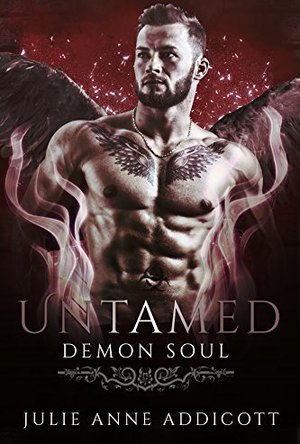
Demon Soul
Book
Untamed: Demon Soul, takes you into a paranormal world with six immortal races created by Genesis,...

Shakespeare's Gardens
Jackie Bennett, Andrew Lawson and Shakespeare Birthplace Trust
Book
Shakespeare's Gardens is a highly illustrated, informative book about the gardens that William...

The Lost Prince: The Life & Death of Henry Stuart
Catharine MacLeod, Malcolm Smuts and Timothy Wilks
Book
This exploration of Henry's life and image, and the extraordinary reaction to his death, transforms...
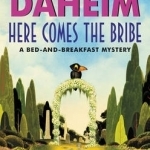
Here Comes the Bribe: A Bed-and-Breakfast Mystery
Book
Judith McMonigle Flynn has her hands full with unexpected family ties and a dead body in the...
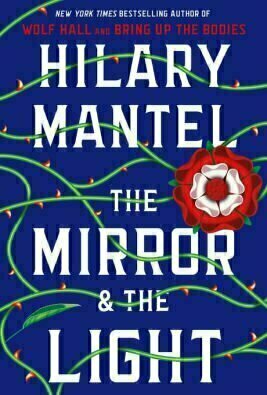
The Mirror & the Light
Book
“If you cannot speak truth at a beheading, when can you speak it?” England, May 1536....
Lyndsey Gollogly (2893 KP) rated Anna of Kleve: Queen of Secrets ( Six Tudor Queens book 4) in Books
Dec 30, 2021
Book
Anna of Kleve: Queen of Secrets ( Six Tudor Queens book 4)
By Alison Weir
Once read a review will be written via Smashbomb and link posted in comments
Newly widowed and the father of an infant son, Henry VIII realizes he must marry again to ensure the royal succession. Forty-six, overweight, and suffering from gout, Henry is soundly rejected by some of Europe's most eligible princesses. Anna of Kleve, from a small German duchy, is twenty-four, and has a secret she is desperate to keep hidden. Henry commissions her portrait from his court painter, who depicts her from the most flattering perspective. Entranced by the lovely image, Henry is bitterly surprised when Anna arrives in England and he sees her in the flesh. Some think her attractive, but Henry knows he can never love her.
What follows is the fascinating story of an awkward royal union that somehow had to be terminated. Even as Henry begins to warm to his new wife and share her bed, his attention is captivated by one of her maids-of-honor. Will he accuse Anna of adultery as he did Queen Anne Boleyn, and send her to the scaffold? Or will he divorce her and send her home in disgrace? Alison Weir takes a fresh and astonishing look at this remarkable royal marriage by describing it from the point of view of Queen Anna, a young woman with hopes and dreams of her own, alone and fearing for her life in a royal court that rejected her almost from the day she set foot on England’s shore.

Méditations avec Christophe André
Health & Fitness and Education
App
Initiez-vous facilement à la méditation de pleine conscience avec Christophe André et...
Deborah (162 KP) rated The Tudor Rose in Books
Dec 21, 2018
Overall the book follows a somewhat traditionalist stance, although Henry Tudor comes across as pretty cold and unlikeable. I wasn't convinced by some of the internal logic and some of the characterisation though. Anne Neville, for example. She is a figure we really don't know that much about, but it's hard to conceive she could be as simple and naive as she is portrayed here! Barnes does try it on a bit with trying to make us wonder if 'Perkin' is really Richard of York (and here the historical novelist has licence, because we really don't know!), despite having Bess keep adamantly stating that she knows her brothers are dead. We're also told that Elizabeth Woodville believes they died, which might lead one to question why she would have a finger in a rebellion against her daughter as queen consort? And if everybody really believed this, why did Sir William Stanley lose his head for saying he wouldn't fight against 'Perkin' if he was really a son of Edward IV - and that is in the historical record as well as this novel. There's an awful lot about Bess believing both Richard and Henry have potentially been culpable in acts of murder, but she herself in this novel is guilty of an act of treachery that is at least as bad!
Not a badly written novel, but I found it frustrating overall!
